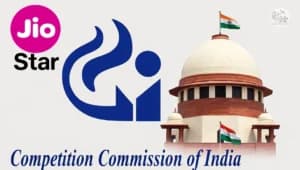The Supreme Court of India has restored the conviction of an accused in a 38-year-old rape case, overturning the Rajasthan High Court's acquittal. The apex court strongly criticized the High Court’s decision, which had set aside the trial court’s judgment solely because the child victim remained silent and only shed tears during cross-examination.
Case Background
The case dates back to March 3, 1986, when a minor girl, identified as ‘V’ for privacy reasons, was found unconscious and bleeding by a local resident, Gulab Chand. A police report was filed the next day, and the accused, Chatra, was arrested and later convicted under Section 376 of the Indian Penal Code (IPC) by the Sessions Court in 1987. He was sentenced to seven years of rigorous imprisonment. However, the Rajasthan High Court overturned the conviction in 2013, granting the accused the benefit of the doubt due to the child’s silence during the trial.
Read Also:- Supreme Court Permits Victim's Parents to Pursue Investigation in RG Kar Rape-Murder Case
The Supreme Court, comprising Justices Vikram Nath and Sanjay Karol, found the High Court’s reasoning flawed and reaffirmed the trial court’s findings. Justice Nath, in his judgment, stated:
"The child witness (victim), it is true, has not deposed anything about the commission of the offence against her. When asked about the incident, the trial Judge recorded that ‘V’ was silent and upon being further asked, only shed silent tears and nothing more. This, in our view, cannot be used as a factor in favor of the respondent. The silence of a child victim of sexual assault cannot be equated with that of an adult prosecutrix."
The bench emphasized that while direct testimony from a prosecutrix is crucial in most cases, it is not an absolute requirement when other evidence, such as medical and circumstantial proof, points to the accused's guilt.
The Supreme Court referred to multiple judgments, including State of Maharashtra v. Bandu alias Daulat, where the court ruled that a prosecutrix’s inability to testify does not absolve the accused if other evidence is strong enough to sustain a conviction.
"If the prosecutrix is unable to testify, or for some justifiable reason remains unexamined, the possibility of conviction is not automatically excluded," the court noted.
The court also referred to State of H.P. v. Sanjay Kumar, highlighting that courts must adopt a survivor-centric approach while dealing with child victims of sexual abuse. The trauma suffered by a minor victim often prevents them from articulating their ordeal, and this should not be misinterpreted as inconsistency or lack of credibility.
Read Also:- Supreme Court Dismisses Rape Allegations Against Ex-Army Officer, Calls Case an Abuse of Law
The prosecution presented strong medical and circumstantial evidence that supported the conviction. Dr. Vasudev, who examined the victim, testified that her injuries were consistent with forced sexual assault. The Supreme Court found the doctor's testimony credible and held that the absence of a child’s direct testimony does not negate the other strong evidence.
Furthermore, the court rejected the High Court's reliance on discrepancies in witness statements, observing that minor inconsistencies do not automatically weaken a prosecution case when supported by medical proof and other corroborating factors.
The Supreme Court also criticized the High Court for revealing the victim’s name in its judgment, disregarding well-established legal principles meant to protect the identity of sexual assault survivors.
Considering the delay in justice—spanning nearly four decades—the Supreme Court decided against remanding the case for fresh consideration by the High Court. Instead, it directly reinstated the conviction and ordered the accused to surrender within four weeks.
"It is a matter of great sadness that this minor girl and her family have had to endure nearly four decades of life, waiting to close this horrific chapter of their lives," the judgment noted.
With this ruling, the Supreme Court reinforced the principle that a child victim's silence, stemming from trauma, cannot be used as a basis for acquittal, ensuring a crucial precedent in handling cases of child sexual assault in India.
Case Title: STATE OF RAJASTHAN VERSUS CHATRA














